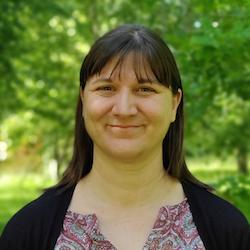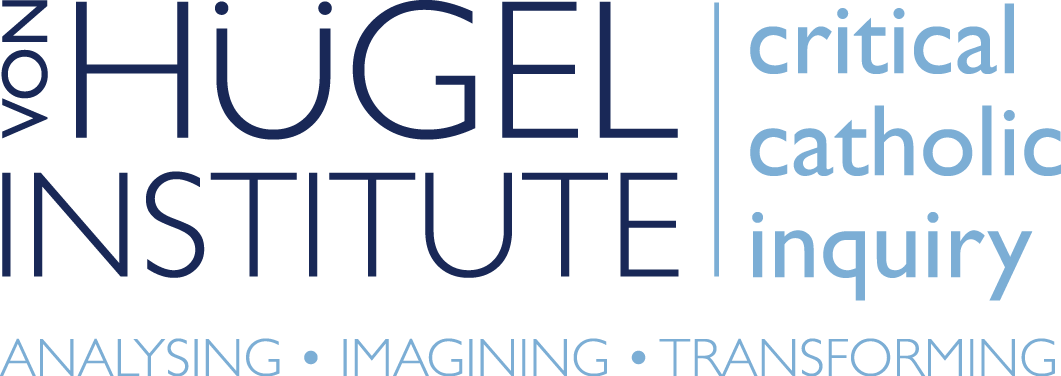Biography
Lidia joined the VHI as a Research Associate in 2014 and she is currently the institute's Research Coordinator and the Editorial Manager of Reviews in Religion & Theology. She studied philosophy at the Universities of Milan, Italy, and Freiburg in Breisgau, Germany. After receiving a postgraduate research scholarship from the Catholic University of Milan, she moved to Dresden, Germany, where she carried out most of her doctoral research work while working as an assistant lecturer in Philosophy of Religion. In 2013 Lidia obtained her PhD from Anglia Ruskin University, Cambridge, with a thesis on Edith Stein's critique of Martin Heidegger. She currently works on a project exploring the nature of knowledge in the context of disability.
Research
Lidia's research background includes continental philosophy, particularly phenomenology, and philosophical anthropology. She has taught and published on dialogue, personhood, empathy, end of life, the philosophy of Edith Stein, Romano Guardini, and Martin Buber. Recent interests focus on philosophy of disability, neurodiversity, vulnerability, interdependence, and ill-health. Currently she is working on the research initiative "Disability and Knowledge", which explores expansively the nature of knowledge from the perspective of disability studies and disability experiences.
Publications
- Lives Not Worth Living: Rethinking Autonomy and Assisted Dying in the Light of Profound Disability, Journal of Disability and Religion, 22(3), 2018, 317-330.
- (With Thana De Campos and Philip McCosker) Special Issue: Navigating Impasses in Bioethics: End of Life, Disability, and Mental Illness, Journal of Disability and Religion, 22(3), 2018, 225-227.
- Review of Antonio Calcagno (ed.), Edith Stein: Women, Social-Political Philosophy, Theology, Metaphysics and Public History. New Approaches and Applications, Reviews in Religion and Theology, 26(1), 2019.
- 'Dasein', 'Geworfenheit', 'Geborgensein', 'Heidegger, Martin', 'Man', in M. Knaup, H. Seubert (eds), Edith Stein – Lexikon, Freiburg: Herder, 2017.
- Review of Andrew Sloane, Vulnerability and Care: Christian Reflections on the Philosophy of Medicine, Reviews in Religion and Theology, 24(3), 2017.
- Disability, Diversity, and Autism: Philosophical Perspectives on Health, The New Bioethics, 22(1), 2016, 56-70.
- Fenomenologia dell’essere umano e analisi dell’Esserci, in A. Ales Bello - F. Alfieri - M. Shahid (eds.) Edith Stein, Hedwig Conrad-Martius-Gerda Walther. Fenomenologia della Persona, della Vita e della Comunitá, Laterza: Bari, 2011.
- Geborgenheit statt Geworfenheit. Bemerkungen zur Kritik Edith Steins an Sein und Zeit in H.-B. Gerl-Falkovitz, R. Kaufmann, H. R. Sepp (eds) Europa und seine Anderen: Emmanuel Levinas - Edith Stein - Józef Tischner, Dresden: Thelem, 2010
- Wie ein gefügiges Werkzeug ganz in Deine Hände: Edith Stein als geistliche Schriftstellerin, Edith Stein Jahrbuch, Würzburg: Echter, 2010.
- Being Thrown or Being Held in Existence? The Opposite Approaches to Finitude of Edith Stein and Martin Heidegger, Yearbook of the Irish Philosophical Society 2009, Maynooth.
- Sein, Wesen und Existenz bei Edith Stein und Martin Heidegger, in Die unbekannte Edith Stein: Phänomenologie und Sozialphilosophie, Frankfurt: Peter Lang, 2006.
Translations (German-Italian):
- Edith Stein, La struttura della persona umana: Corso di antropologia filosofica, Roma: Città Nuova, 2013 (revision)
- Romano Guardini, Lettere a Josef Weiger (1908-1962), Opera Omnia vol. XXVI/1, Brescia: Morcelliana, 2010
- Romano Guardini, Scritti di metodologia filosofica, Opera Omnia Vol I, Brescia: Morcelliana, 2007 (partial translation)
Popular Articles:
-
Le Dipendenze Positive, Excursus+ (21/09/2023)
-
If assisted dying is legalised, who gets to decide whose life is worth living?, The Conversation (25/02/2019)
-
Disabilità e intolleranza: perché dobbiamo educare alla gentilezza, Huffington Post Italia (15/09/2016)
-
Di autismo non ci si ammala e non ci si cura, Huffington Post Italia (1/04/2016)


